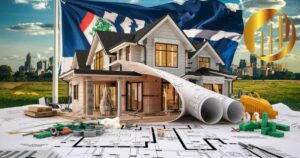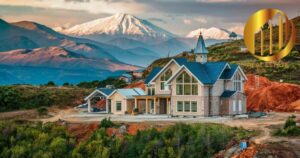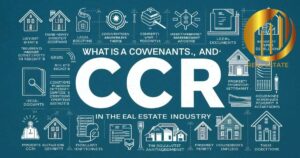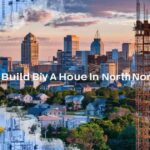In North Carolina, Building a house costs roughly $151 per square foot. For a 2,000-square-foot home, this likens to a complete expense of around $302,000. In any case, these expenses can vary in light of elements like the particular area, the kind of property, and the expenses of work and materials. Under ordinary conditions, the development of a house would take around 9 to a year.
Important Focal Points
- The normal expense to fabricate a house in North Carolina: is $151 per square foot.
- All out costs normally range from $300,000 to $755,000.
- Most houses fall within the expense scope of $140 to $175 per square foot.
- Factors like size, custom completions, and energy proficiency essentially influence general expenses.
- The timetable for building another home in North Carolina is for the most part 9 to a year.
Normal Expense of Building a House in North Carolina
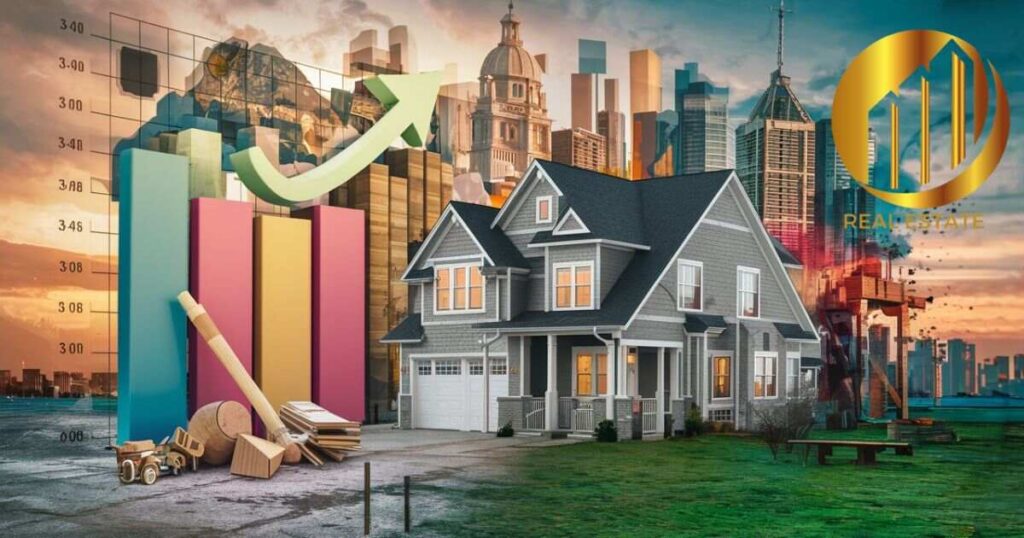
Overall, it costs about $151 per square foot to construct a home in North Carolina. Notwithstanding, these figures are just a beginning stage. The all-out cost to construct a home in North Carolina can go from $420,000 to $630,000, with a typical home costing $302,000 to fabricate. This cost is affected by a few variables including the size of the home, the nature of materials, and the intricacy of the plan.
Figuring out Costs through Area
| HOME SIZE | AVERAGE PRICE RANGE |
| 500 sq. ft. | $75,500 – $87,500 |
| 1,000 sq. ft. | $151,000 – $175,000 |
| 1,500 sq. ft. | $226,500 – $262,500 |
| 2,000 sq. ft. | $302,000 – $350,000 |
| 2,500 sq. ft. | $377,500 – $437,500 |
| 3,000 sq. ft. | $453,000 – $525,000 |
| 3,500 sq. ft. | $528,500 – $612,000 |
| 4,000 sq. ft. | $604,000 – $700,500 |
| 4,500 sq. ft. | $679,500 – $787,500 |
| 5,000 sq. ft. | $755,000 – $875,000 |
Normal Expense to Build a House in North Carolina by Number of Rooms
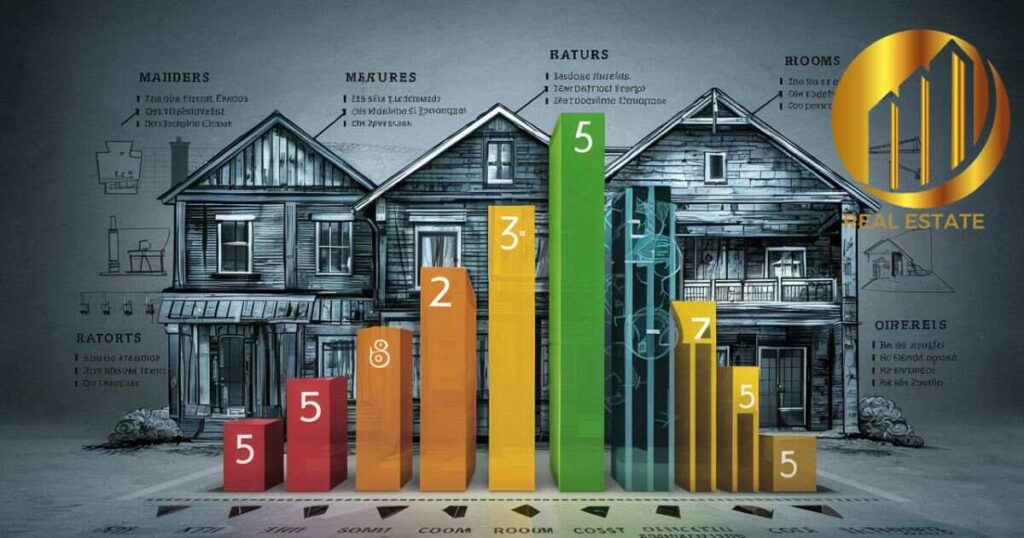
1 Room
- Measured: $80,000 – $250,000
- Stick-Assembled: $128,000 – $550,000
2 Rooms
- Measured: $100,000 – $450,000
- Stick-Assembled: $160,000 – $990,000
3 Rooms
Measured: $180,000 – $625,000
Stick-Assembled: $288,000 – $1.38 million
4 Rooms
Measured: $250,000 – $1.25 million
Stick-Assembled: $400,000 – $2.75 million
Normal Expense to Build a House in North Carolina by Number of Stories
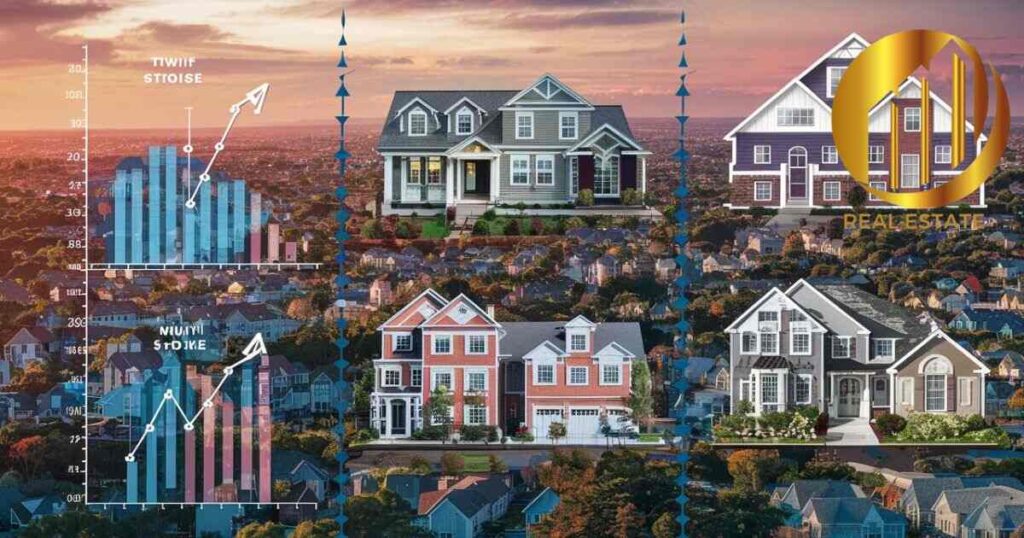
1 Story
- Measured: $80,000 – $450,000
- Stick-Assembled: $128,000 – $990,000
2 Stories
- Measured: $150,000 – $625,000
- Stick-Assembled: $240,000 – $1.38 million
3 Stories
- Measured: $250,000 – $1.25 million
- Stick-Assembled: $400,000 – $2.75 million
Cost to Building a House in North Carolina by Style
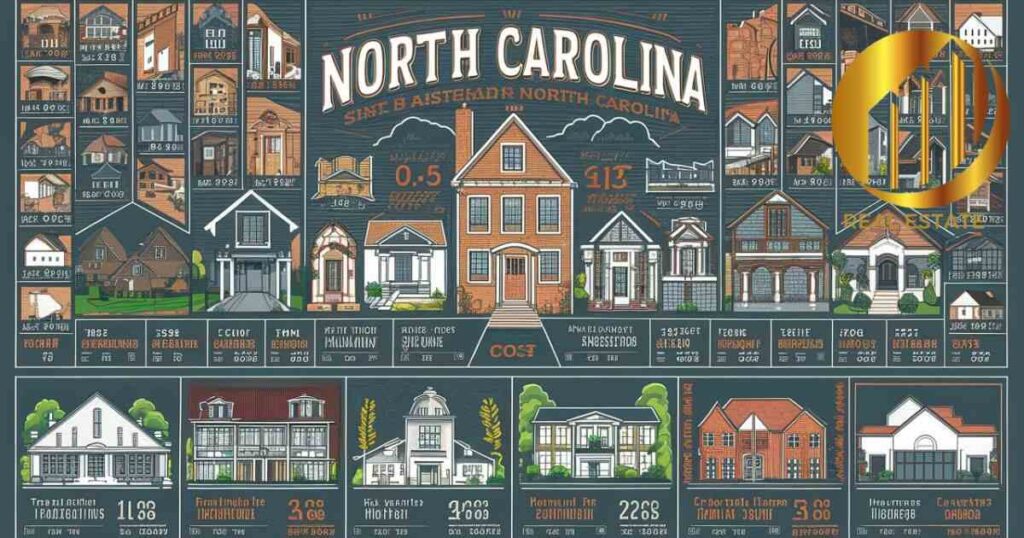
Minimalistic home
- Secluded: $33,000 – $80,000
- Stick-Constructed: $50,000 – $125,000
House
- Secluded: $60,000 – $500,000
- Stick-Constructed: $96,000 – $1.1 million
Lodge
- Secluded: $150,000 – $500,000
- Stick-Constructed: $240,000 – $1.1 million
Cape Cod
- Secluded: $150,000 – $500,000
- Stick-Constructed: $240,000 – $1.1 million
Farm
- Secluded: $150,000 – $500,000
- Stick-Constructed: $240,000 – $1.1 million
Georgian/Government Pioneer
- Secluded: $200,000 – $750,000
- Stick-Constructed: $320,000 – $1.65 million
Farmhouse
- Secluded: $200,000 – $750,000
- Stick-Constructed: $320,000 – $1.65 million
Current Frontier
- Measured: $200,000 – $750,000
- Stick-Assembled: $320,000 – $1.65 million
Beach front
- Secluded: $250,000 – $875,000
- Stick-Constructed: $400,000 – $1.93 million
Victorian
- Secluded: $250,000 – $875,000
- Stick-Constructed: $400,000 – $1.93 million
Southern Estate
- Secluded: $300,000 – $1 million
- Stick-Constructed: $560,000 – $2.2 million
Normal Expense to Build a House in North Carolina by Urban Communities
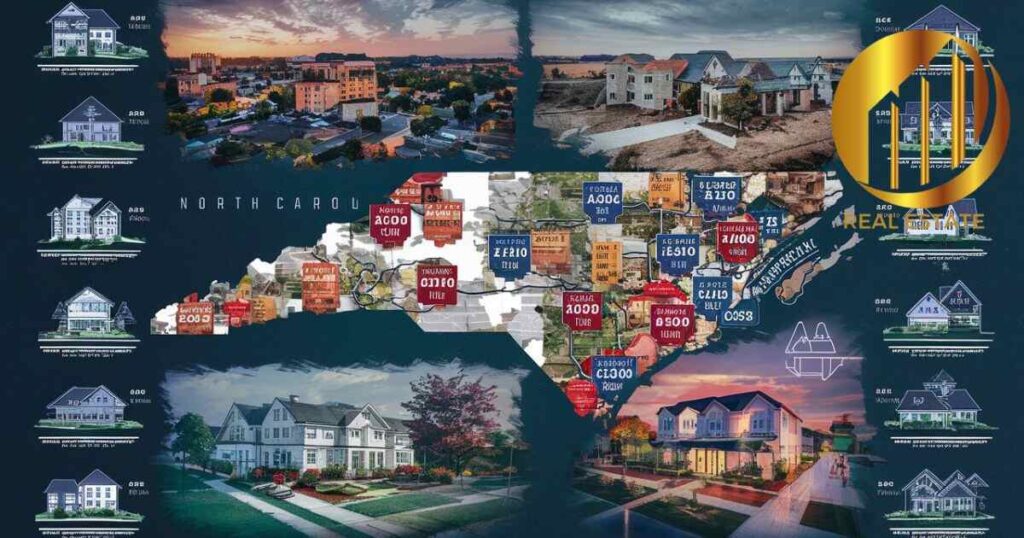
| CITY | AVERAGE BUILDING COSTS PER SQ. FT. |
| Asheville | $150 |
| Charlotte | $145 |
| Raleigh | $175 |
| Wilmington | $130 |
House Development Costs Across States
| STATE | AMOUNT |
| North Carolina | $301,500 |
| Alabama | $267,620 |
| Alaska | $421,080 |
| Arizona | $295,580 |
| Arkansas | $251,800 |
| California | $405,440 |
| Colorado | $299,300 |
| Connecticut | $345,440 |
| Delaware | $327,060 |
| Florida | $263,640 |
| Georgia | $273,860 |
| Hawaii | $412,840 |
| Idaho | $315,520 |
| Illinois | $265,440 |
| Montana | $298,960 |
| Nebraska | $210,900 |
| Nevada | $334,140 |
| New Hampshire | $299,900 |
| New Jersey | $376,900 |
| New Mexico | $290,940 |
| New York | $360,180 |
| North Dakota | $212,500 |
| Ohio | $222,480 |
| Oklahoma | $260,500 |
| Oregon | $340,580 |
| Pennsylvania | $302,200 |
Provincial Varieties in Cost
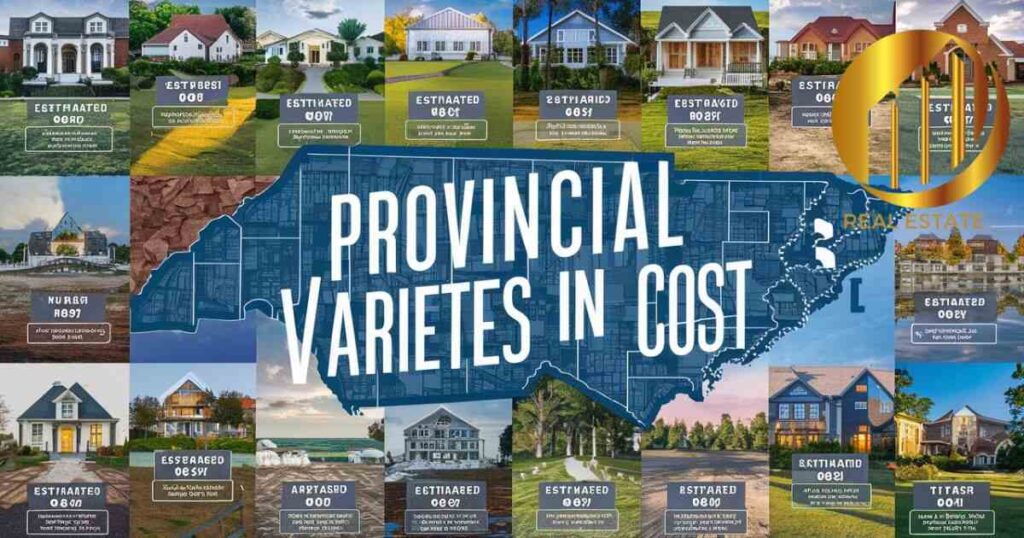
The expense of building a house likewise shifts across various urban communities and regions in North Carolina. For example, the typical structure costs per square foot are higher in Raleigh ($175) contrasted with Asheville ($150), Charlotte ($145), and Wilmington ($130).
Exhaustive Deconstruction of Costs
Hard Expenses
Hard expenses are straightforwardly connected with the development interaction. These include:
- Material Expenses: Roughly half of the general development costs, averaging around $50 per square foot.
- Project worker Charges: Normally 10% to 20% of the all-out development esteem.
- Electrical Expenses: Going from $7,500 to $12,500.
- Rooftop Establishment Expenses: Shifting in light of material and size, from $3,000 to $34,500.
- Plumbing Expenses: Around $12,000.
- Central Air Establishment Expenses: Somewhere in the range of $1,500 and $12,500.
Delicate Expenses
Delicate expenses are backhanded costs connected with building a house. These include:
- Land Expenses: The typical cost per section of land in North Carolina is around $23,300.
- North Carolina Home Structure Grant Expenses: Roughly $5,000.
- Home Insides: Something like $20,000 for a 2,500 sq. ft. home.
- Home Inside Creator Expenses: Around $5,400.
Key Elements Affecting House Building Costs in North Carolina
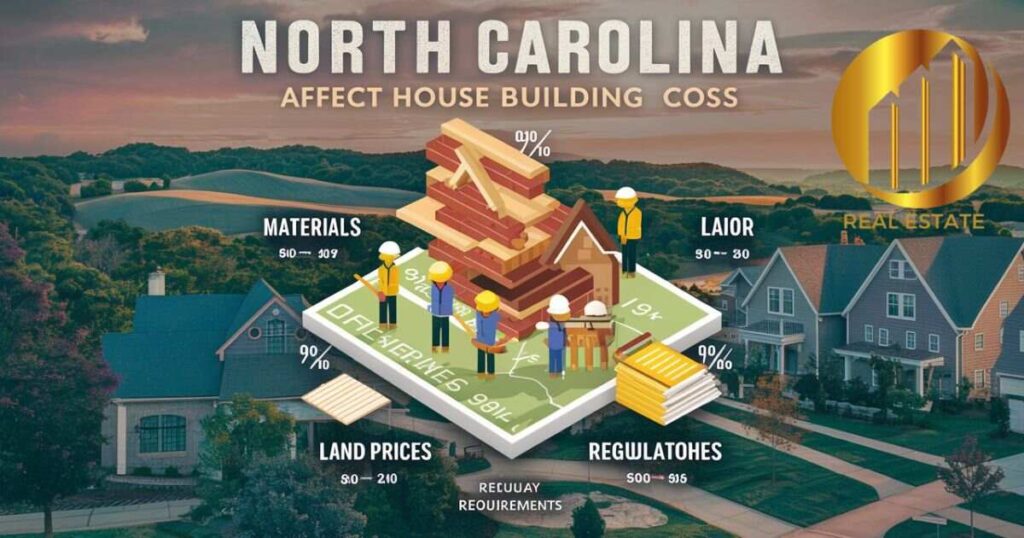
- Property Type and Size: The general plan, size, and sort of property altogether impact the expense. Bigger homes and more perplexing plans ordinarily require more materials and work.
- Material Expenses: The cost of building materials can vary given market patterns and accessibility. In North Carolina, materials like timber, drywall, and siding can shift in cost, affecting the absolute cost.
- Work Costs: The expense of talented workers like circuit repairmen, handymen, and woodworkers is a main consideration. Work expenses can fluctuate contingent on the experts’ insight and the venture’s intricacy.
- Area and Land Expenses: The expense of land in North Carolina changes by area. Metropolitan regions like Charlotte and Raleigh could have higher land costs contrasted with rustic regions. Furthermore, land readiness costs for development add to the costs.
- License and Lawful Charges: Getting building grants is a vital cost. The expense of these grants fluctuates across various areas in North Carolina and relies upon the task’s degree.
- Customization and Completions: Custom elements and very good quality completions can altogether build the expense. Customized components like custom cabinetry, flooring, and design subtleties require extra assets.
- Development Strategy: Conventional stick-constructed homes might have various expenses contrasted with secluded or pre-assembled homes. The development technique picked can influence both the course of events and the general expense.
- Economic situations: Financial factors, for example, expansion, production network issues, and interest in development administrations can influence the general expense of building a house.
- Utility Associations: The expense of associating with electrical, water, and sewage frameworks can change, particularly if the property is situated in a far-off region.
- Arranging and Outside Work: Open-air work, including finishing, carports, and porches, is frequently an extra expense not represented in the underlying financial plan.
Period for Building a House in North Carolina
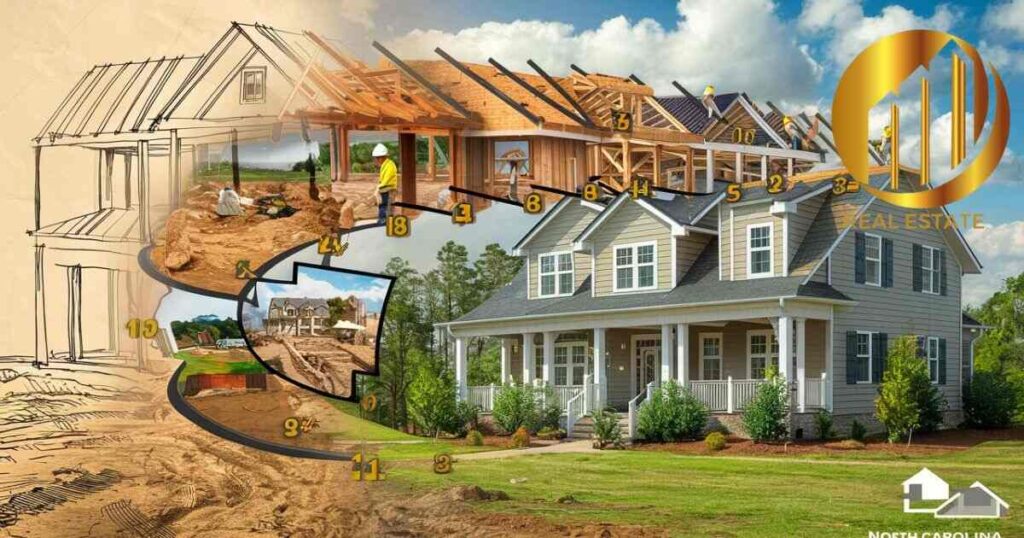
Arranging and Plan: 1-2 months
- Compositional plan
- Acquiring vital grants
Site Planning: 1-3 weeks
- Clearing land
- Establishing the groundwork
Outlining and Design: 1-2 months
- Building the casing
- Material and outside walls
Plumbing, Electrical, and air conditioning: 1-2 months
- Introducing fundamental frameworks
- Guaranteeing utility associations
Protection and Drywall: 2 a month
- Protecting walls
- Introducing drywall
Inside Wrapping up: 1-2 months
- Flooring
- Painting
- Cabinetry and apparatuses
Outside Wrapping up: 2 a month
- Siding
- Windows and entryways
Last Contacts: 2 a month
- Finishing
- Inside itemizing
Examination and Endorsement: 1 fourteen days
- Last examinations
- Getting inhabitance licenses
Move-In Prepared: Around 6-9 months all out
Brilliant Ways of Saving Money on Home Development
- Pick a Basic Plan: Choose a direct, less intricate compositional plan to decrease costs.
- Analyze and Arrange Worker for hire Offers: Get different offers and haggle at the best cost with project workers.
- Mass Acquisition of Materials: Purchase materials in mass to profit from limits.
- Reuse and Reuse Materials: Use reused or previously owned materials where conceivable.
- Do-It-Yourself Where Attainable: Take on undertakings like works of art or straightforward establishments yourself.
- Settle on Savvy Materials: Pick materials that offer sturdiness and reasonableness.
- Plan Productively to Stay Away from Changes: Limit expensive changes by intensive preparation and decision-production forthright.
- Energy-Effective Plans: Integrate energy-productive elements to save money on long-haul utility expenses.
- Slow time of year Development: Timetable development during off-top seasons to possibly bring down work costs.
- Smooth out Venture The executives: Proficient administration of the task can lessen time and work costs.
Investigating Assorted Monetary Pathways for House Development
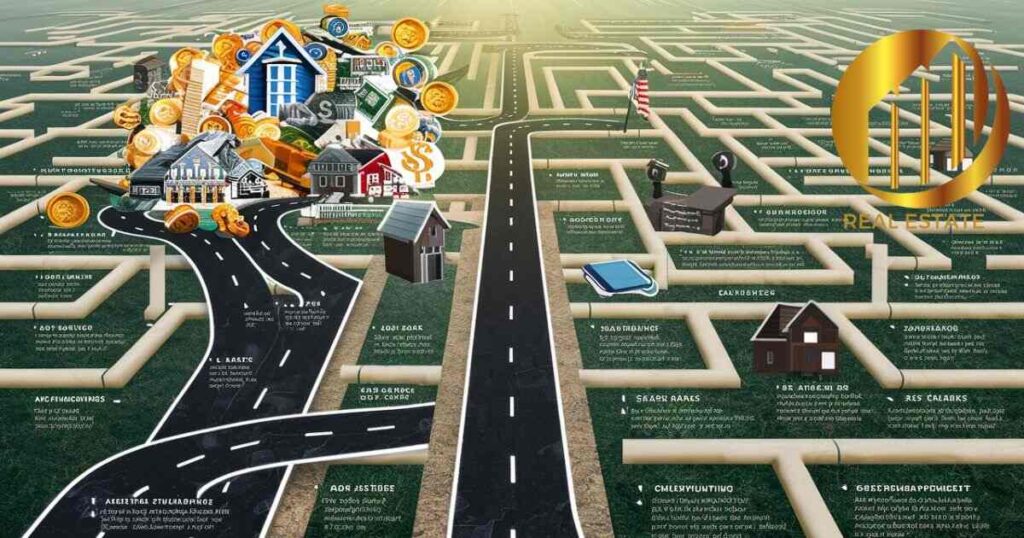
- Development Credits: Specific advances that cover the expense of building another home. They normally convert to a standard home loan after development fulfillment.
- Contract with Development Rider: A conventional home loan that incorporates extra assets for development, combining land buy and incorporating costs into one credit.
- Proprietor Manufacturer Advances: For the individuals who need to go about as their overall worker for hire. These credits require point-by-point development plans and a more elevated level of examination.
- Home Value Credit extension (HELOC): On the off chance that you currently own property, a HELOC can give subsidies in light of your current home’s value.
- Individual Reserve funds: Involving individual reserve funds for essentially a piece of the development can decrease the sum required in credits, possibly bringing down general expenses.
- Government Advances: Projects like FHA development credits offer lower initial investments and are open to those with lower FICO ratings.
- Land Credits: If you’re purchasing land independently, a land advance can back the buy. This credit is ordinarily joined with a development credit later.
- Speculation Organizations: Collaborating with financial backers who contribute capital in return for an offer on the property.
- Crowdfunding: A flighty strategy where assets are raised through an organization of companions, family, and financial backers.
- Awards and Appropriations: In certain locales, awards or endowments are accessible for development, especially for eco-accommodating or feasible structure projects.
- Seller Funding: A few manufacturers or material providers might offer supporting choices for their administrations or items.
- Span Credits: Transient advances that cover the hole between the development start and getting long-haul support.
Building versus It is Different to Purchase What?
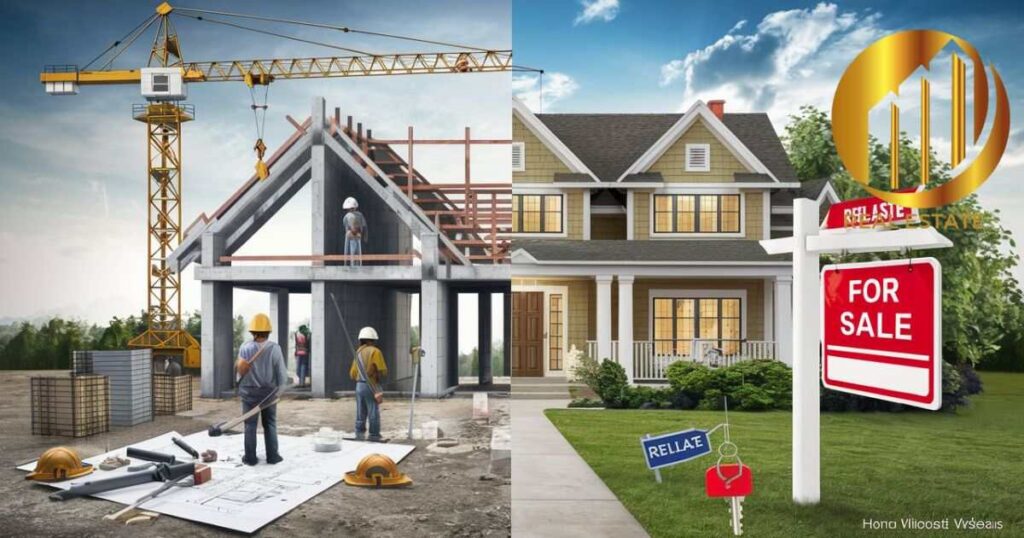
Building a house offers the remarkable benefit of customization, permitting property holders to fit each part of their home to their particular requirements and tastes. This cycle, notwithstanding, frequently accompanies a more exorbitant cost tag and a more drawn-out time, going from getting licenses to the genuine development stage, which can require a while to north of a year.
Fabricating likewise includes a more complicated funding process, ordinarily requiring a development credit that proselytes into a home loan upon consummation. The contribution in navigation is critical, from choosing materials to regulating the development cycle, which can be both fulfilling and requesting. Real Estate Click Funnels can streamline some aspects of this process, offering digital tools and strategies to optimize marketing, lead generation, and sales within the real estate industry.
Interestingly, it is for the most part more direct and quicker to purchase a current home. It includes an easier monetary cycle, ordinarily requiring only a traditional home loan. While purchasing limits customization choices and may incorporate extra expenses for remodels or refreshes, it offers the accommodation of prompt inhabitance. Existing homes may likewise be in laid-out neighborhoods with mature finishing and local area conveniences. Be that as it may, more seasoned homes could need present-day highlights and efficiencies, possibly prompting higher support costs. The decision between building and purchasing to a great extent relies upon individual inclinations, financial plans, and how much private contribution one cravings in the formation of their home.
What Advantages of Building a House?
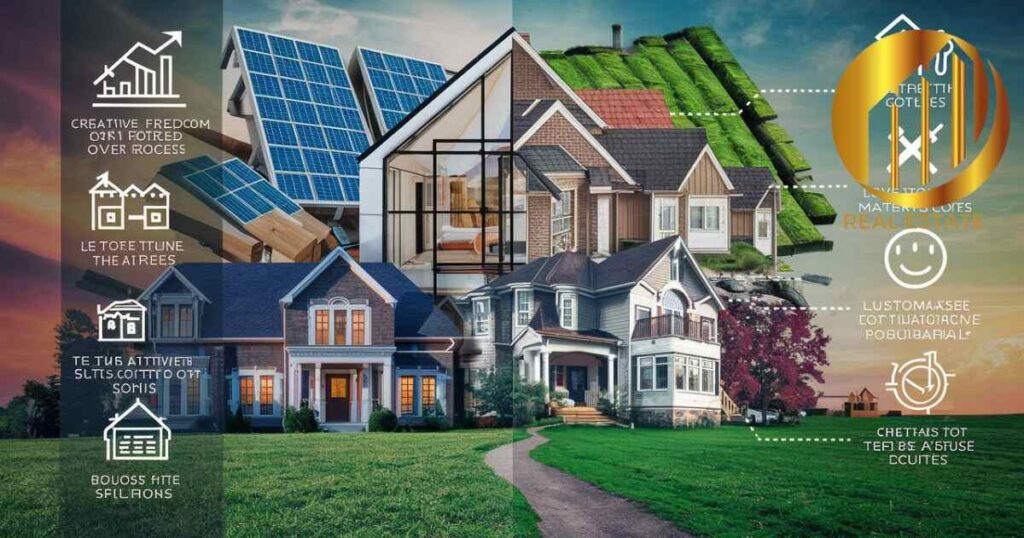
- Customization: You have the opportunity to plan and modify your home as per your inclinations, requirements, and way of life. This incorporates picking the design, and materials, gets done, and includes.
- Energy Effectiveness: New homes can be worked with the most recent energy-productive innovations and materials, prompting lower service bills and a more modest carbon impression.
- Present-day Conveniences: You can integrate current conveniences and innovations, for example, savvy home frameworks, high-level security elements, and contemporary apparatuses.
- Low Support: New developments require less upkeep and fixes in the underlying years contrasted with more established homes, as everything from machines to material is pristine.
- Guarantee Security: New homes frequently accompany guarantees for development and machines, giving true serenity and insurance against unexpected issues.
- Wellbeing and Security: New homes are worked with the most recent building regulations and security principles, guaranteeing better indoor air quality, utilization of non-poisonous materials, and generally more secure day-to-day environments.
- Speculation Worth: Building a home can be a wise venture, as new homes can have a higher resale worth and appeal to purchasers searching for current elements and negligible fix needs.
- Individual Accomplishment: Building a home can be a satisfying individual venture, offering pride and the potential chance to make a space that genuinely mirrors your taste and way of life.
FAQ’s
Is 2024 a Decent Year to Build a House?
2024 is projected to be a generally steady year for new home development. Material and work costs are supposed to rise somewhat yet not radically. Loan fees may likewise increment yet remain generally low. Generally, 2024 ought to be a decent year to construct.
Will Home Remodel Costs Go Down in 2024?
Most specialists don’t predict a huge drop in that frame of mind in 2024 contrasted with 2023. Amble costs are declining yet different materials and work stay costly. 2024 expenses ought to remain predictable.
What Amount does it Cost to Build a 2000-square-foot house in North Carolina?
The typical expense to fabricate a 2,000 sq ft home in NC is $302,000 depending upon completions, area, and different elements.
Is it Less Expensive to Build or Purchase a House in NC?
As of now, it’s frequently less expensive to work than purchase in North Carolina’s hot real estate market. However, consider land obtaining and complete expenses cautiously while choosing, as existing homes might be checked out in certain areas.
What Amount Does it Cost to Build a 2500 sq ft House in North Carolina?
To fabricate a 2,500-square-foot house in North Carolina, hope to pay $377,500 to $437,500 depending upon the area, completions, format, and other form determinations. The per-square-foot cost goes from $150 to $225 by and large.
Conclusion
Understanding the cost of building a house in Pennsylvania for 2024 requires meticulous consideration of various factors outlined in this comprehensive guide. Factors such as location, square footage, materials, labor, and permits significantly impact overall expenses. With an average cost of $151 per square foot, totaling approximately $302,200 for a 2000-square-foot home, prospective homeowners must budget wisely and plan meticulously to ensure their dream home aligns with financial expectations.
Additionally, staying informed about market trends, construction regulations, and potential cost-saving strategies can empower individuals to make informed decisions throughout the building process. By leveraging this guide’s insights and prudent financial planning, aspiring homeowners can embark on their construction journey with confidence and clarity.





